| Official Name: | Republic of Suriname |
| Official Language: | Dutch |
| Area: | 163,820 km2 (63,252 sq mi) |
| Population: | 576,000 |
| Time Zone: | UTC−3 |
| Capital City: | Paramaribo |
| Elevation (Paramaribo City): | 3 m (10 ft) |
| Currency: | Surinamese Dollar (SRD) |
| Main Cities: | Paramaribo, Lelydorp, Brokopondo |
| Main Port: | Port of Paramaribo |
| Required visa for entry: | Nationals from Canada, EU countries, the UK, and others require electronic visas (40 USD). They can be purchased clicking here. |
| Required vaccination for entry: | Yellow fever. Travelers from endemic countries must vaccinate 10 days before entering Suriname. (Review epidemiological alerts by clicking here). |
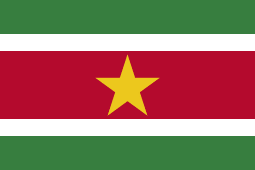
Main Risks:
Theft, robbery, kidnapping, extortion, rape, drug and human trafficking, fraud, vehicle assault.
Executive Summary
Suriname features medium risks. Security risks increase considerably in remote areas beyond the main cities, as well as in impoverished neighborhoods of the capital. For business trips and itineraries involving travel through the countryside, we recommend procuring secure transportation services. For high-profile trips, we further recommend hiring executive protection services.
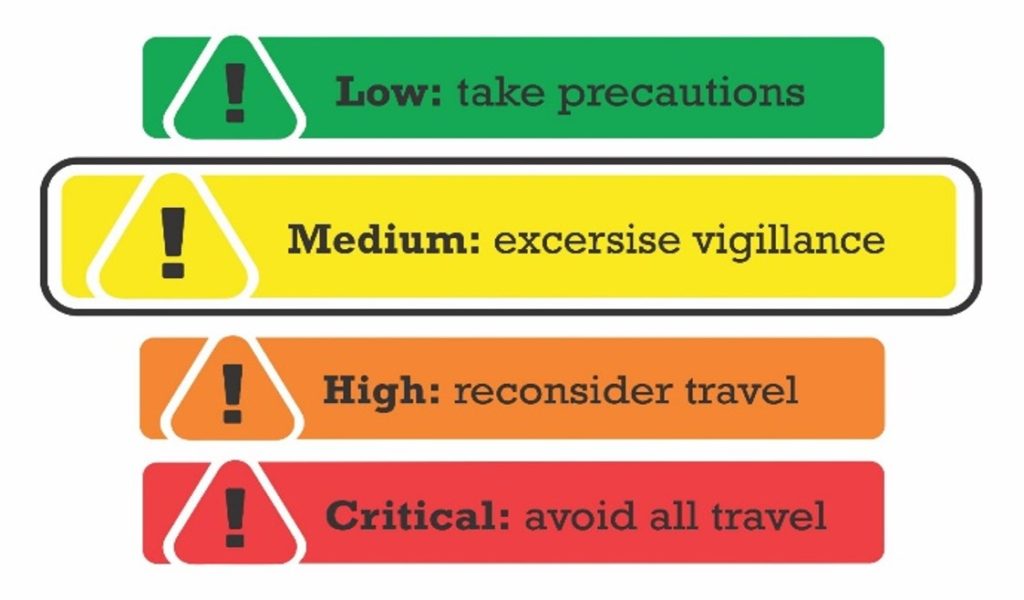
General Risk Level: MEDIUM.
The risk generally remains stable throughout the country. That said, for security reasons, we advise against nonessential travel to the cities of Albina and Moengo. As a rule of thumb, it is best to avoid remote and jungle areas, as well as impoverished areas in the main urban areas, where police control is lacking. We recommend studying a security plan before traveling to Suriname under supervision from reputable professionals.
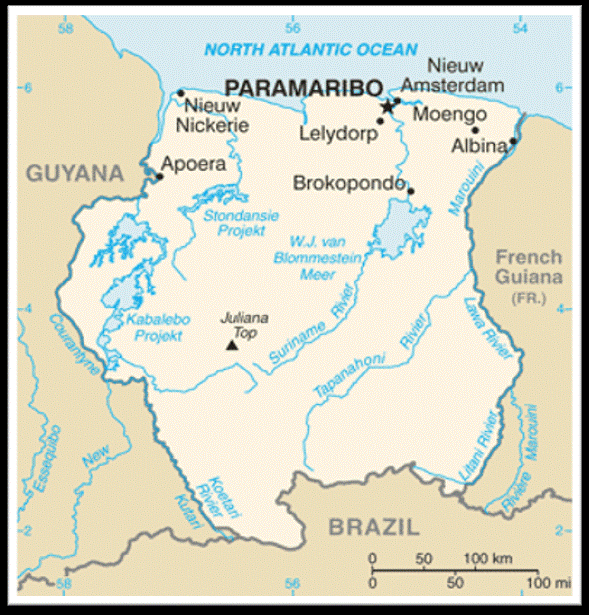
Crime and Security
The main threat to those visiting Suriname stems from opportunistic low and medium level crime. Although violent incidents are more likely to take place in impoverished districts and remote areas, crime is also recurrent in central and tourist-frequented neighborhoods of Paramaribo. Many criminals in the city often operate on motorbikes and assault vehicles at a standstill and distracted pedestrians, including tourists and foreigners. For security reasons, public transportation should be avoided. If secure transportation services are unavailable, resort to reputable taxis recommended by the main hotels, preferably booked in advance.
For security reasons, we advise against non-essential travel to the cities of Albina and Moengo due to high crime rates. Moreover, while it is feasible to travel to the countryside, it is best to procure secure transportation services to do so. That said, avoid unnecessary travel to remote, jungle, and/or sparsely populated areas.
Security services in Suriname are not deemed trustworthy. In any event, police are not prepared to counter the threat posed by crime. For this reason, the most privileged areas housing expats and the upper classes are generally guarded by private security guards.
Due to the widespread lack of information technology in the country, credit and debit cards are not usually accepted outside the main hotels. Furthermore, due to the risk of identity theft, payment by card may entrail fraud risks. Casual transactions are generally carried informally in cash. For this reason, it is best to sell USD or Euros for SRD at reputable exchange houses.
Please bear in mind that Suriname is vulnerable to protracted rains, which can cause flooding and cause heavy disruptions, especially between April and July. Finally, political stability is somewhat challenged. The opposition accuses the government of corruption and of subverting the due political process. As a precaution, avoid the vicinity of any unfolding political event or demonstration.
Security in Paramaribo
No area in the city is completely safe from crime, including central areas frequented by tourists and foreigners. It is thus necessary to stay alert and exercise vigilance in the capital. Keep personal belongings close. At any rate, the central areas are still considered safer than others to travel and carry out transactions. If possible, stay in the vicinity of the Palmentuin (Palm Garden), where the most prominent hotels are located, adjacent to the shoreline. It is also possible to lodge in Morgenstod, a well-off area. Excepting the peripheral neighborhoods, although the risk of crime persists, it is possible to visit other parts of the city.
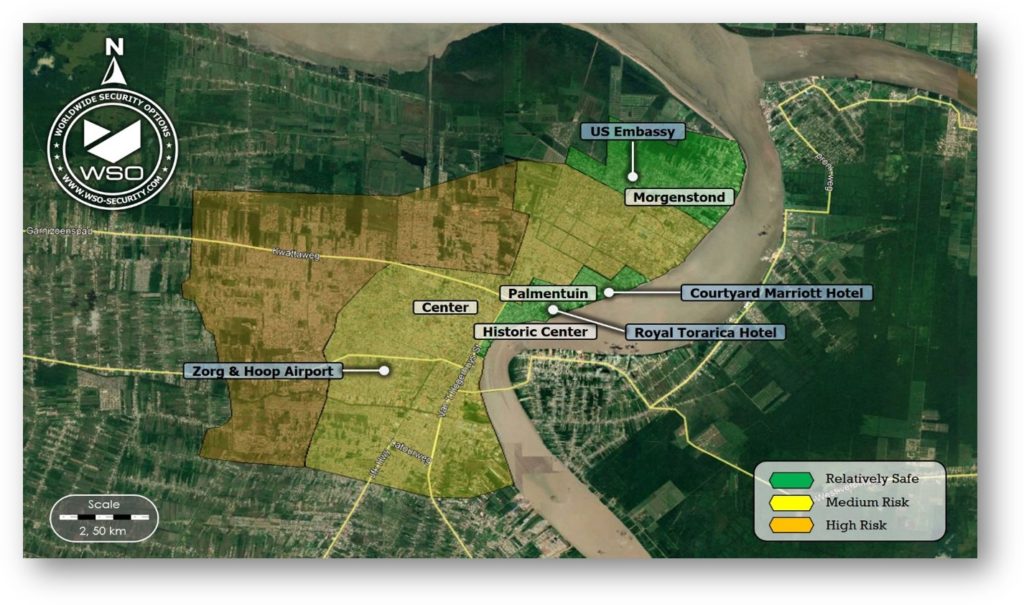
Two commercial airports are serving Paramaribo. The Zorg & Hoop (ORG) Airport is located in the city center. It is used for small aircraft and charter flights. In turn, the Johan Adolf Pengel International Airport (PBM) is the largest in the country and the main entry point into Suriname. It is located in the Zanderij locale, about 45 south of Paramaribo. The trip between the airport and the historic center in the capital lasts about 60 minutes depending on traffic conditions.
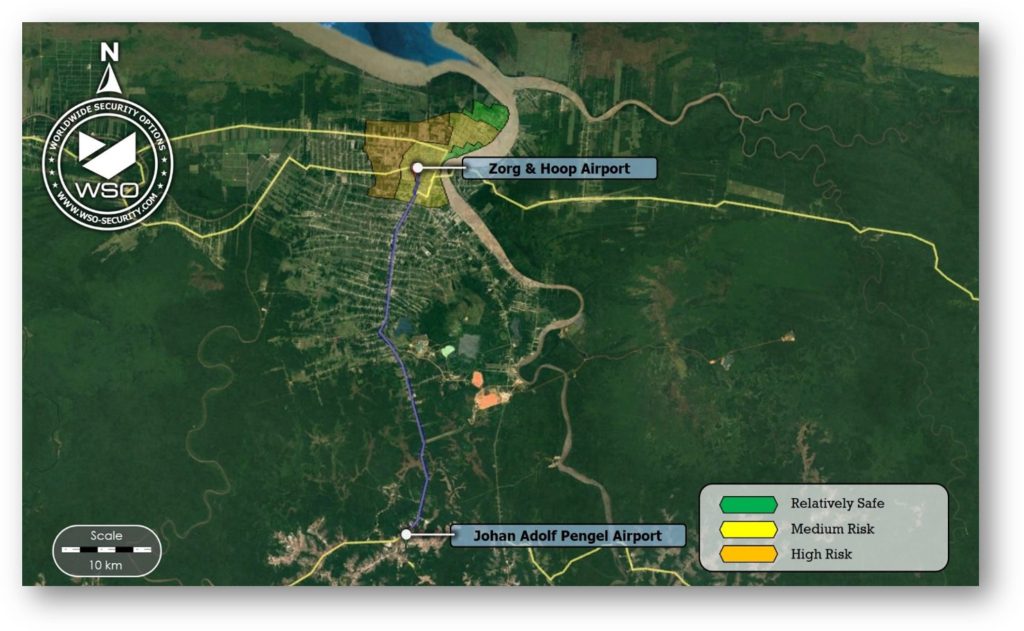
Transportation
For security reasons, in Suriname, public transportation should be avoided. Regular taxis can be used provided they are recommended by the prominent hotels. If possible, arrange transportation details in advance. That said, please be advised that some taxi drivers might attempt to take advantage of foreign passengers to inflate the price of the trip. In this vein, for business and high-profile trips, we advise procuring reputable private transportation services. This should also be the case for trips to the countryside. Moreover, for high-profile visits, it is further recommended to hire executive protection services.
Land routes are not necessarily in good condition and are rarely illuminated. This situation can lead to security risks while traveling through the countryside, especially under poor visibility or during the dark hours. Therefore, if traveling by land, do not deviate from primary thoroughfares. It is best to avoid secondary routes removed from central localities and which remain in poorer circumstances. Be advised that in Suriname vehicles drive on the left. If travel to Suriname involves visiting locations outside the capital city, whether for business or tourism, make sure to plan the route in advance under the supervision of local security professionals. Educated assessments should enable the security contractor to determine the safest route and avoid unilluminated or otherwise dangerous paths.
Health and Sanitary Conditions
Due to the lack of infrastructure, Suriname is vulnerable to tropical storms and heavy rains, especially outside Paramaribo. Travelers should pay attention to forecasts and avoid trips during adverse weather conditions.
Travelers coming from yellow fever endemic countries (review epidemiologic alerts clicking here) may be requested to present a vaccination certificate upon entry. In any case, it is also recommended vaccinating against tetanus, hepatitis A and B, and typhoid. Taking into account the tropical weather, it is very important to wear protection against bugs and avoid leaving body areas uncovered to mitigate the risk of suffering insect and mosquito-borne diseases such as dengue, Chagas, and the Zika virus. These precautions should be followed at all times while entering remote and jungle areas. The quality of tap water in Paramaribo is good. However, this might not be the case outside the capital, especially in remote and rural areas that lack adequate sanitary infrastructure. It is therefore recommended to drink sealed bottled water while visiting or staying in such areas.
It is not advised to travel without international health insurance covering emergency medical evacuation to the country of origin.
Take essential health precautions to mitigate the risk of contracting diseases or viruses. Carry masks in crowded places such as airports and maintain rules of social distance and avoid contact with surfaces of common use in public places. Always carry hand sanitizer.
Tactical Recommendations
Exercise vigilance and situational awareness throughout the trip to Suriname, especially in urban areas vulnerable to low and medium-level criminal activity. In Paramaribo avoid venturing into high-risk areas.
We recommend procuring private transportation services for business and high-profile trips, and itineraries involving travel to the countryside. For high-profile trips, we further recommend hiring executive protection services. For security reasons, do not use public transportation. If required, use taxis vetted by the main hotels.
Avoid non-essential travel to the cities of Albina and Moengo due to higher crime rates. Furthermore, we advise against traveling to the countryside without secure transportation services.
If travel by route through the countryside is required, avoid all detours, especially while traveling through sparsely populated rural or jungle zones. If possible, plan routes and stopovers ahead with the support of a local security contractor.
Avoid carrying large sums of cash or valuables during the trip. We advise against wearing or carrying items in public that may give the impression of economic affluence and which could attract unwanted attention from criminals.
Avoid traveling in sport or luxurious cars which could attract unwanted attention from criminals.
Do not resist armed robbery attempts. We recommend to always carry a few 100 SRD bills for duress cases, specifically to appease criminals looking for easy money.
For security reasons, minimize travel during night hours, even in Paramaribo.
We recommend lodging in reputable establishments and hotels with private security. In Paramaribo, it is best to stay in the Historic Center, especially in the vicinity of Palmentuin (Palm Garden).
Exchange USD or euros in official exchange houses. Given the risk of identity theft, refrain from using credit and debit cards outside reputable hotels.
Avoid the vicinity of every kind of political demonstration or rally in urban areas. Peaceful protests can be infiltrated by violent elements.
Take all necessary precautions to mitigate the risk posed by insect and mosquito-borne diseases. When visiting remote locations drink sealed bottles if the quality of tap water is questionable.
Emergency Contacts
Police: 115
Ambulance: 113
Fire: 110
WSO Global Command Center: +1 956 467 4858 / gcc@wso-security.com
Security advice and assistance over WhatsApp: +593 99 461 1128 / +521 81 1511 3166







